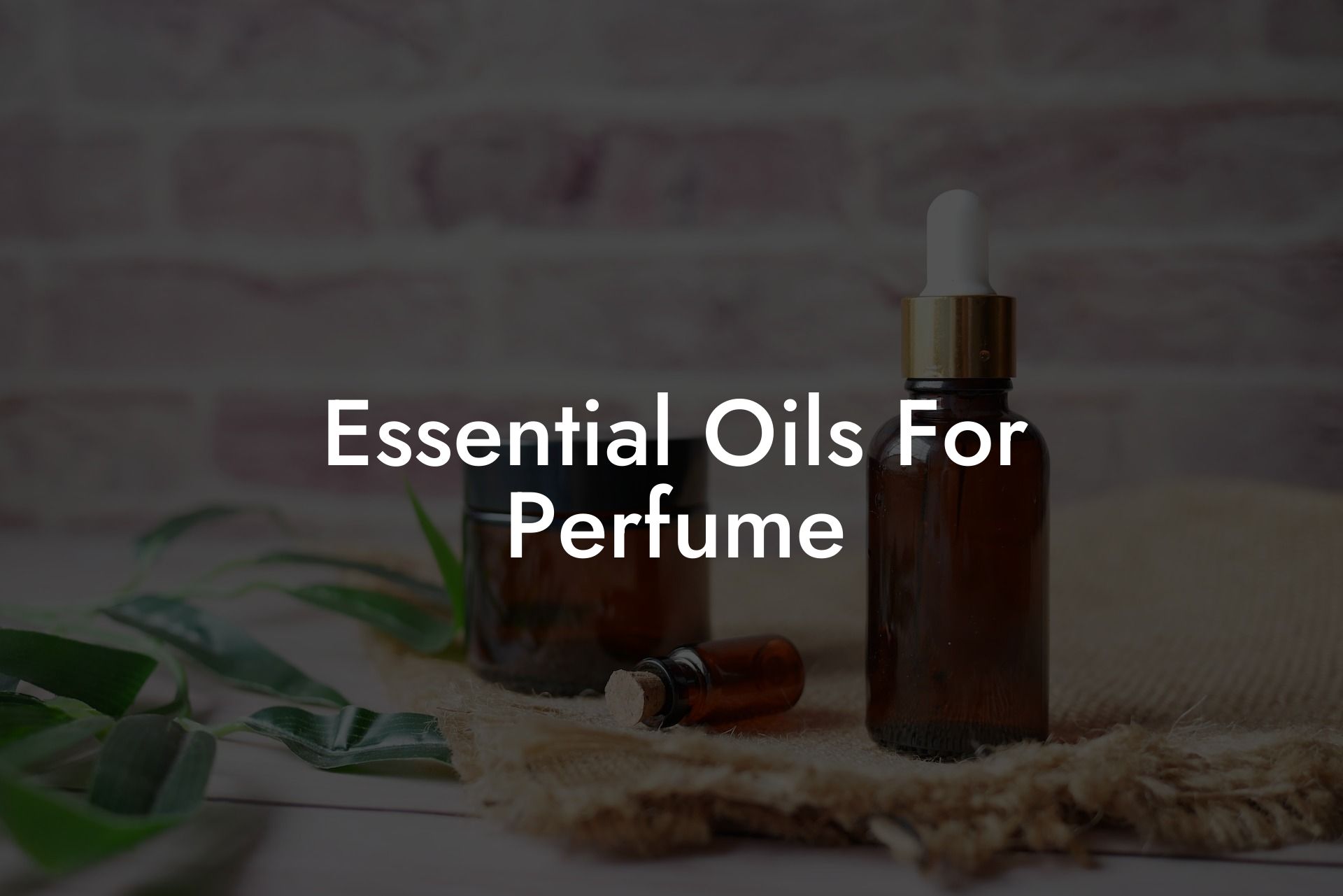Is your perfume shelf starting to look a little cluttered with store-bought fragrances that don’t quite suit your needs? If so, you might be interested in creating your own signature scent using essential oils. Essential oils offer a wide array of natural and customizable scents to choose from. In this comprehensive guide, we’ll explore the art of using essential oils for perfume, the main benefits compared to traditional store-bought fragrances, and a step-by-step guide on how to create your own luxurious perfume blends.
Table of Contents
- Benefits of Using Essential Oils for Perfume
- Natural and Chemical-Free
- Customizable
- Therapeutic Properties
- Choose a Carrier Oil or Alcohol Base
- Select Your Essential Oils
- Blend Your Oils
- Dilute with Your Carrier Oil or Alcohol Base
- Sublime Citrus Bloom Perfume
- Basic Guidelines for Making Essential Oil Perfumes
Benefits of Using Essential Oils for Perfume
Natural and Chemical-Free
Many store-bought perfumes contain synthetic chemicals to create their scent, and some of these chemicals can be harmful to your health. On the other hand, essential oils are derived from natural plant materials, meaning they’re free from harmful synthetic chemicals, making them a safer choice for your scent needs.
Customizable
Using essential oils for perfume allows you to create a scent that’s entirely unique to you. You can play with different scent profiles and blending ratios to make a perfume that perfectly matches your personality and preferences.
Therapeutic Properties
Many essential oils have therapeutic properties that can benefit your overall wellbeing. When used as a perfume, these oils can provide a calming, mood-lifting, or energizing effect throughout the day.
Basic Guidelines for Making Essential Oil Perfumes
Choose a Carrier Oil or Alcohol Base
- Carrier Oils: These are the oils that will dilute the essential oils and help to carry their scent. Some popular carrier oils for perfumes include jojoba oil, sweet almond oil, and coconut oil. Carrier oils are ideal for those with sensitive skin or those who prefer oil-based perfumes.
- Alcohol Base: A high-proof alcohol such as vodka or Everclear is often used as the base for perfumes, as it will evaporate quickly and leave the scent behind. Alcohol-based perfumes typically have a stronger and longer-lasting scent compared to oil-based perfumes.
Select Your Essential Oils
When making your own perfume, you’ll need to choose essential oils that have scents you enjoy and blend well together. Essential oils are typically divided into three categories: top notes, middle notes, and base notes. These categories are based on the volatility of the oils, whether they evaporate quickly or slowly, and are useful in creating a balanced and complex scent. Some popular essential oils used in perfumes include:
- Top Notes: Citrus oils (bergamot, lemon), herbal oils (eucalyptus, peppermint), and floral oils (lavender, neroli).
- Middle Notes: Floral oils (rose, geranium), herbal oils (chamomile, basil), and spicy oils (nutmeg, cinnamon).
- Base Notes: Woody oils (cedarwood, vetiver), resinous oils (frankincense, myrrh), and spicy oils (vanilla, patchouli).
Blend Your Oils
Creating your essential oil perfume involves blending your chosen oils in specific ratios. A general guideline for blending is to use roughly 50% base notes, 30% middle notes, and 20% top notes. Experiment with these ratios to create your perfect scent.
Dilute with Your Carrier Oil or Alcohol Base
Once you’ve created your essential oil blend, you’ll need to dilute it with your chosen carrier oil or alcohol base. The typical dilution is 10-20% essential oil blend to 80-90% carrier oil or alcohol base. You can adjust the concentration based on your preferences and skin sensitivity.
Essential Oils For Perfume Example:
Now that you’re familiar with the process of creating your own essential oil perfume, let’s put it all together with a simple recipe to get you started:
Sublime Citrus Bloom Perfume
- 12 drops bergamot (top note)
- 10 drops lavender (middle note)
- 8 drops cedarwood (base note)
- 1 oz. jojoba oil or high-proof alcohol
Instructions:
- Combine bergamot, lavender, and cedarwood essential oils in a small glass container.
- Blend the essential oils together, allowing them to synergize.
- Add your chosen carrier oil or alcohol base to a glass bottle.
- Add your essential oil blend to the bottle, shake well to combine, and allow it to mature for at least 48 hours.
- Enjoy your Sublime Citrus Bloom Perfume by applying to your pulse points!
There you have it, a step-by-step guide to creating your very own essential oil perfume! By using essential oils, you’ll not only enjoy a one-of-a-kind scent, but you’ll also benefit from their natural therapeutic properties. Don’t be afraid to explore and experiment with different essential oil combinations. You may just find your signature scent.
We invite you to share this article with friends and family who might be interested in making their own natural perfumes. Dive deeper into the fascinating world of essential oils and aromacology by exploring our other guides on the Oshu Oils blog. And be sure to check out our range of artisan essential earth oils to find high-quality, expertly blended oils for all your fragrance needs.





















